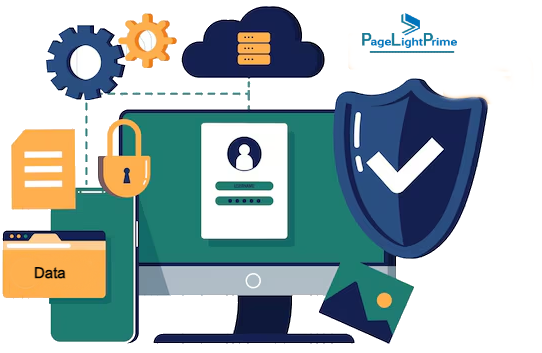5 Costly Legal Accounting Mistakes (and How Legal Accounting Software Can Save Your Firm)
In the highly competitive legal industry, efficient financial management is crucial for sustaining profitability and maintaining client trust. However, many law firms often face challenges in managing their accounting practices effectively. From manual errors to compliance issues, here are five costly legal accounting mistakes that can impact your firm—and how implementing the right legal accounting software can help mitigate these risks.
Written by Knowledge Team, posted on June 15, 2024

Streamlining Efficiency and Avoiding Errors
Manual Data Entry Errors (Avoiding Legal Accounting Errors)
One of the most common accounting pitfalls in law firms is manual data entry errors. Relying on manual processes for entering financial data leaves room for human error, leading to discrepancies in billing, expense tracking, and client invoices.
Real-World Example
Consider a midsize law firm that manually enters hundreds of transactions monthly. A single data entry error in billing a high-profile client led to a $10,000 discrepancy. This not only caused significant strain on the firm’s financial records but also damaged their relationship with the client, resulting in a loss of future business.
Legal accounting software can automate data entry, significantly reducing the risk of such costly errors and improving overall accuracy.

Reconciliation Nightmares
Poor reconciliation practices exacerbate financial discrepancies and create auditing challenges. Without efficient reconciliation processes, law firms struggle to match their financial records with bank statements and client accounts accurately.
Real-World Example
A law firm faced a prolonged audit because of unresolved discrepancies between their financial records and bank statements. This delayed their financial reporting and resulted in missed opportunities to promptly address billing errors.
Legal accounting software offers automated reconciliation and real-time alerts for discrepancies, ensuring that your financial records are always accurate and up to date.

Ensuring Trust Account Compliance
Overlooking IOLTA Compliance Rules (IOLTA Compliance Software)
Failure to comply with IOLTA (Interest on Lawyers Trust Accounts) regulations is a serious offense that can result in severe penalties and even the suspension of legal licenses. IOLTA compliance ensures that client funds are properly managed and segregated from law firm operational funds.
Real-World Example
A small law firm overlooked a crucial IOLTA compliance rule and ended up mixing client funds with operational funds. This mistake led to severe penalties and damaged the firm’s reputation.
Legal trust accounting software can automate compliance checks, ensuring adherence to regulatory requirements and safeguarding client funds. These tools track and report IOLTA compliance in real time, significantly reducing the risk of human error.

Simplifying Time Tracking and Billing
Inconsistent Time Tracking (Time Tracking for Lawyers)
Accurate time tracking is crucial for law firms to bill clients correctly and optimize resource allocation. Inconsistent time tracking practices not only lead to revenue leakage but also affect client relationships and billing transparency.
Real-World Example
A law firm discovered that its lawyers were underreporting billable hours due to inconsistent time tracking methods. This resulted in significant revenue loss over the year.
Legal accounting software with integrated law firm time tracking features enable lawyers to log billable hours accurately, track case expenses, and generate detailed invoices promptly. A survey found that law firms lose up to 30% of billable hours due to inconsistent time tracking, highlighting the importance of reliable software solutions.

Inaccurate Billing Practices
Billing errors, such as incorrect rates, duplicate charges, or missing billable items, can strain client relationships and hinder cash flow management.
Real-World Example
A firm faced numerous billing disputes with clients due to incorrect rates and duplicate charges. These disputes not only delayed payments but also strained client relationships.
Legal accounting software streamlines the billing process by automating invoice generation, applying predefined billing rules, and providing real-time visibility into unbilled hours and expenses. Features like automated rate application and error detection help prevent these common issues, ensuring smoother billing cycles and enhanced client satisfaction.

Mitigating Missed Deadlines and Penalties
Missed Filing Deadlines
Missing critical filing deadlines for taxes, court submissions, or regulatory reports can result in severe penalties, legal consequences, and reputational damage.
Real-World Example
A law firm incurred hefty fines and faced legal consequences for missing tax filing deadlines. This also damaged their professional reputation.
Legal accounting software equipped with deadline management tools sends automated reminders, tracks filing deadlines, and facilitates timely submissions, ensuring compliance with regulatory requirements and minimizing the risk of penalties. One firm that implemented deadline management tools saw a 40% reduction in missed deadlines within the first year.

Late Fees and Penalties
Accruing late fees due to missed payments or delayed billing cycles can strain a firm’s financial health and operational efficiency.
Real-World Example
Another firm frequently missed payment deadlines, resulting in substantial late fees and penalties that affected their cash flow and financial stability.
Legal accounting software improves cash flow management by automating payment reminders, tracking accounts receivable, and facilitating online payment processing. This proactive approach reduces late payments, minimizes financial risks, and strengthens financial forecasting capabilities. Law firms using these tools report a significant decrease in late payments and enhanced financial stability.

Improving Financial Reporting and Decision-Making
Lack of Financial Transparency (Law Firm Financial Reporting)
Without clear financial insights and real-time reporting capabilities, law firms struggle to make informed business decisions.
Real-World Example
A firm had difficulty planning for growth due to a lack of financial transparency. Without real-time financial reports, they couldn’t accurately forecast budgets or measure profitability.
Legal accounting software consolidates financial data from various sources into comprehensive reports and dashboards, offering partners and stakeholders visibility into key performance indicators, profitability metrics, and budgetary forecasts. This transparency enhances strategic planning, supports growth initiatives, and strengthens financial stewardship. Visual dashboards provide easy access to financial data, facilitating better decision-making.

Data Security Vulnerabilities
Inadequate data security measures expose law firms to risks of data breaches, unauthorized access, and confidentiality breaches.
Real-World Example
A law firm suffered a data breach due to inadequate security measures, leading to unauthorized access to sensitive client information. This breach resulted in regulatory fines and loss of client trust.
Legal accounting software deployed on secure cloud platforms utilizes robust encryption protocols, access controls, and data backup procedures to protect sensitive client information. By safeguarding data integrity and confidentiality, legal accounting software enhances client trust, mitigates regulatory compliance risks, and fosters a secure operational environment. Features such as encryption standards and two-factor authentication ensure robust data protection.

By addressing these critical legal accounting challenges and leveraging the capabilities of modern legal accounting software, your law firm can enhance operational efficiency, ensure regulatory compliance, and drive sustainable growth. Invest in the right tools and practices to streamline your financial management, improve client trust, and position your firm for long-term success.
